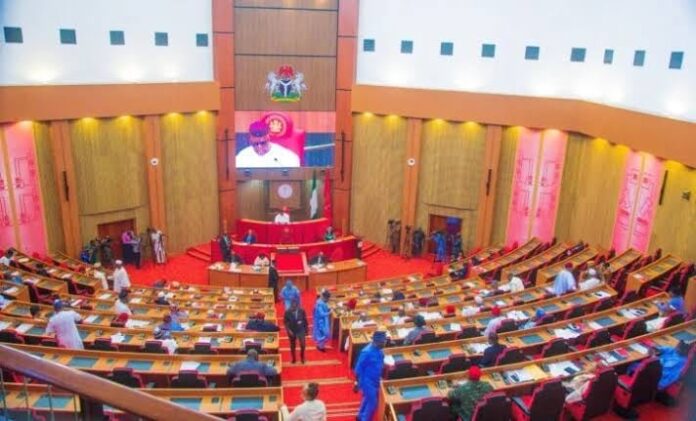The Nigerian Senate has moved the Bill for an Act to Establish the Chartered Institute of Revenue and Fiscal Management of Nigeria (SB. 614) to its second reading, marking a key step toward the potential professionalisation of the country’s revenue and fiscal management sector—amid concerns over duplication of roles.
Sponsored by Senator Aliero Adamu Mohammed Mainasara (Kebbi Central), the bill seeks to create a statutory institute responsible for capacity building, regulation, and the promotion of global best practices in fiscal administration. Its aim is to enhance efficiency, transparency, and accountability in public financial management.
In plenary, Mainasara highlighted the urgency of improving Nigeria’s fiscal management, noting that the country’s debt-to-revenue ratio reached 147 per cent of retained revenue in 2024.
He argued that a professional body dedicated to training, certifying, and regulating revenue practitioners could reduce inefficiencies, curb revenue leakages, attract investment, and support sustainable national development.
Supporters—including Senators Mohamed Sani Musa (Niger East), Waziru Aminu Tambuwal (Sokoto), and Mikael Adetokunbo Abiru (Lagos East)—stressed that the institute would professionalise the sector, improve fiscal discipline, strengthen capacity building, and complement the Senate’s oversight and appropriation functions.
Not all senators were convinced. Senator Binos Dauda Yaroe (Adamawa South) and others cautioned that existing bodies, such as the Chartered Institute of Taxation (CIT), already regulate aspects of revenue collection, raising concerns over regulatory overlap, unnecessary costs, and potential institutional redundancy. Critics questioned whether creating a new institution was the most efficient approach, suggesting that amendments to existing laws might suffice.
Acknowledging these concerns, the Senate emphasized the importance of public hearings and committee deliberations to clarify the institute’s mandate and harmonize it with existing regulations. Senators agreed that amendments could be made to prevent overlap, but there was consensus that the bill should proceed to second reading to allow broader consultation.
Potential Impact of the Institute: if enacted, the institute would offer professional courses, workshops, and certifications for revenue practitioners; regulate members’ conduct and maintain professional standards; advise government on fiscal policy; and conduct research to improve revenue management practices.
Advocates argue that the institute could play a crucial role in modernising Nigeria’s fiscal landscape, enhancing global competitiveness, and promoting transparent and accountable public financial management.
Deputy Senate President Jibrin Barau, presiding over the plenary, described the bill as “a timely and important initiative” to strengthen fiscal governance. While acknowledging concerns about potential duplication and costs, he urged thorough consultations and public hearings to ensure the new institute complements, rather than conflicts with, existing regulatory bodies.
“Any new framework must complement, not conflict with, the bodies already regulating revenue and fiscal matters,” Barau said. He noted that the bill reflects the Senate’s commitment to enhancing transparency, improving national revenue generation, and supporting sustainable economic development.
The advancement of SB. 614 underscores the Senate’s broader effort to strengthen Nigeria’s revenue generation and fiscal governance, balancing the drive for professionalisation with caution over cost and institutional efficiency.

